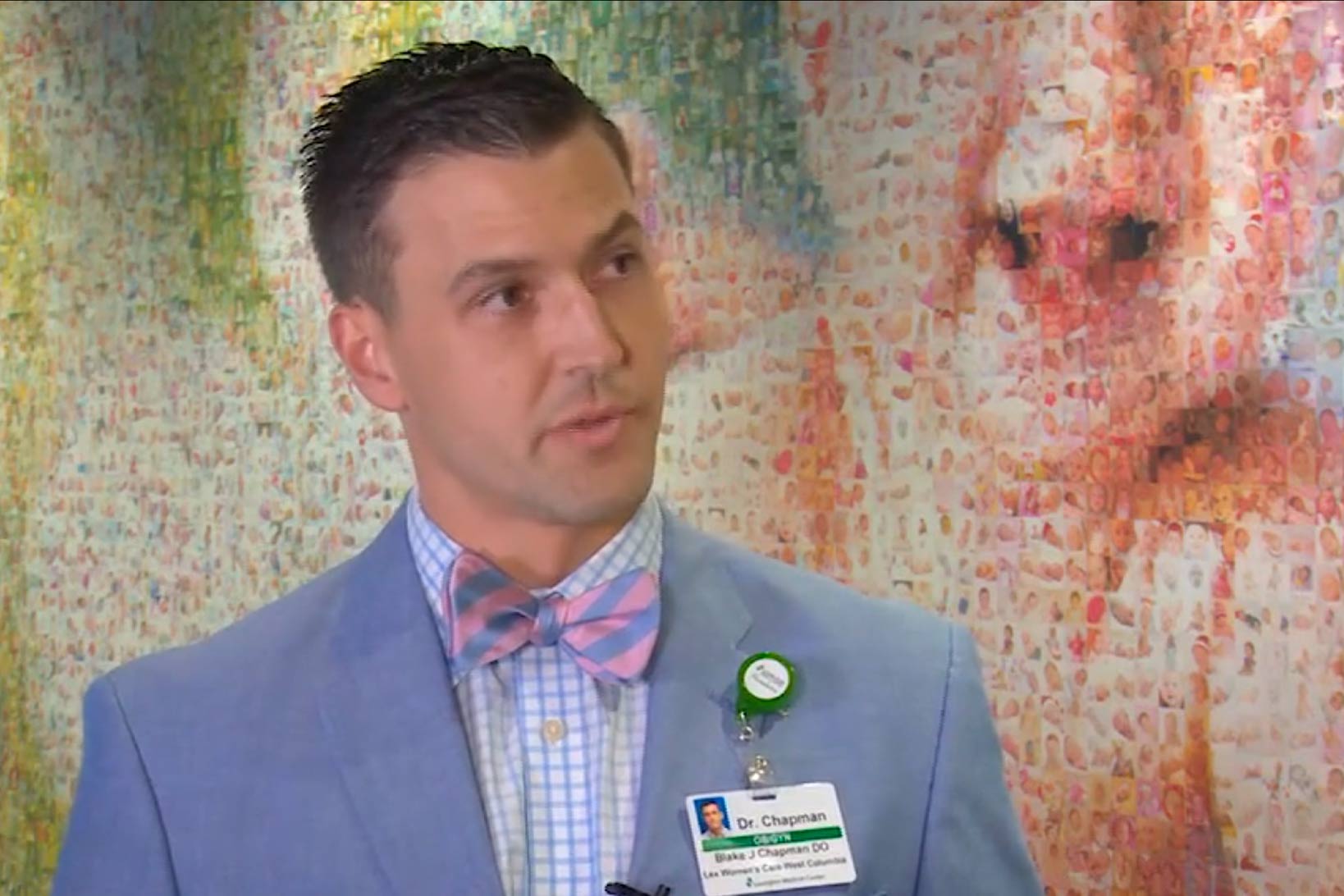Infertility is a unique medical diagnosis for doctors because it involves a couple rather than just an individual. For couples under age 35, infertility is defined as the inability to conceive after 12 months of unprotected intercourse. For couples over age 35, it's six months.
In this WLTX interview inside Lexington Medical Center's new patient care tower, Dr. Blake Chapman of Lexington Women's Care, a Lexington Medical Center physician practice, talks about diagnosing infertility and helping couples to welcome a baby.
According to Dr. Chapman, young, healthy, fertile couples only have a 15 to 20 percent chance of conceiving each menstrual cycle. After three months, approximately 50 percent of those couples would become pregnant. After 12 months, it jumps to 85 to 90 percent.
That means that approximately 10 to 15 percent of couples fall into the category of infertility and should see their health care provider.
About 1/3 of infertility is female factor infertility. Causes could be something a woman has been born with that's making it difficult to conceive, a history of pelvic infections or surgery, or some medications she's taking.
About 1/3 of infertility is male factor infertility. Causes could be a man has been born with something that's making it difficult to conceive, his body doesn't transport sperm correctly, or he's had pelvic trauma or pelvic radiation.
The last 1/3 of infertility is undefined. That means doctors aren't sure of the cause and help patients pursue other avenues to have a baby.
If you're considering pregnancy, Dr. Chapman recommends seeing your physician for pre-conception counseling, which includes a look at your medical history and any medications you're taking. This type of patient education plays an important role in optimizing chances of natural fertility.


![AshleighDonahuePhotography-140[2] Asbill family at home with baby](https://blog.lexmed.com/images/librariesprovider80/blog-post-featured-images/ashleighdonahuephotography-140-2.jpg?sfvrsn=8a3e920b_0)
![shutterstock_1674223735[41] Smiling middle aged woman riding a bicycle](https://blog.lexmed.com/images/librariesprovider80/blog-post-featured-images/shutterstock_1674223735-41.jpg?sfvrsn=9f546f0a_0)




